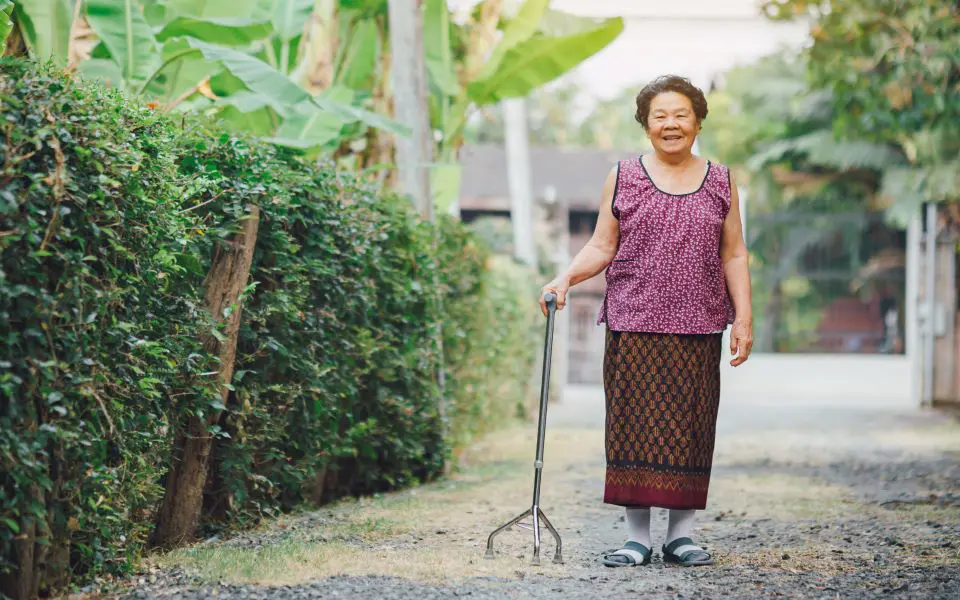January 17, 2023
How Long-Term Care Can Improve Fall Prevention for Seniors
Changes in physical ability, health conditions and medications increase your loved one’s risk of falling. Improving fall prevention for seniors can be done by assessing their well-being and surroundings, which may reduce their likelihood of injury.

Fall Risk Factors for Seniors
Seniors 65 and older are at a greater risk for falls. Other risk factors include:
- Muscle weakness
- Stiff joints or arthritis
- Reduced balance
- Poor eyesight
- Hearing loss
- Cognitive decline, dementia and Alzheimer’s
- Dizziness
- Sleepiness
- Confusion
Senior Fall Prevention
Ask your loved one’s primary care physician about fall risk assessments and prevention. Provide them with an updated list of your parent’s medication to see if some side effects or interactions could cause dizziness, drowsiness and confusion. Your loved one’s doctor may recommend switching prescriptions or weaning them off medication.
Exercise is essential to lowering your parent’s fall risk. Light to moderate exercise helps seniors build and maintain muscle mass, flexibility and coordination. Walking, water aerobics and yoga combine mind-body training to boost your parent’s strength and focus.
Here are some senior fall prevention tips:
- Clear walkways of boxes, shoes, low furniture, cords and loose rugs.
- Secure rugs with double-sided tape or slip-resistant stoppers.
- Repair or remove loose flooring and carpet.
- Ensure bedrooms, bathrooms and hallways are well-lit.
- Install nonslip mats, grab bars and seating in the shower or tub.
- Keep essential items like food, clothes and medications within reach.
Long-Term Care and Fall Prevention
You may consider moving your loved one into long-term care if they have a history of falls and injuries. Long-term care facilities offer 24-hour care and assistance to help your mom or dad stay safe and healthy.
Long-term care staff are trained to provide fall screenings, assessments and interventions based on your loved one’s fall risk factors. Proper senior fall prevention is a multi-factor strategy that includes addressing your parent’s history of falls, physical well-being, cognitive ability and medications.
Proper intervention may require physical or occupational therapy to help your mom or dad learn how to move safely and improve their balance.
Long-term care residences are designed with safety in mind. The rooms are well-lit and clear of obstructions. Your loved one will be given a tour of the facility to familiarize them with their surroundings. They will also learn where to find lights, alerts and call systems during an emergency.
Long-Term Care From Embassy
Embassy Healthcare offers comprehensive long-term care to provide residents with an improved quality of life. Our various medical and health services allow your loved one to live safely and comfortably. Call 216-378-2050 for more information and schedule a tour online.
